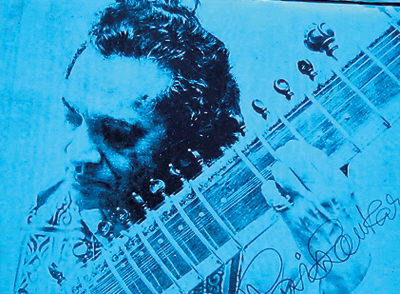Ravi Shankar talks of the ‘happy go lucky’ Sri Lankans
As I heard of the death of the world’s greatest sitar player Ravi Shankar at 92, I looked through my little library and picked up ‘Raga Mala – Ravi Shankar’s autobiography ‘, which I had bought in February 2000. I had a faint recollection that he had made a reference to Sri Lanka in the book. I was right.

Ravi Shankar at the Hotel Ceylon Intercontinental concert
“I had first met Penny (Dr. Penelope Estabrook) in 1960 when I visited Sri Lanka, one of my favourite countries. It has a variety of scenic beauty, and the people are so likable – live and let-live, happy go lucky types, fond of music and the arts. It reminded me of our own South Indian state Kerala. Lionel Edirisinghe, the late principal of the music college in Colombo, was a friend of mine who did much of the teaching and popularising of Indian classical music there,” he writes.
He calls Penny whom he had met just as he was leaving for India, a good piano player, with a doctorate in Western music and well trained in ballet and tap dancing. He says she was interested in Indian music and was undertaking a short training course with Lionel Edirisinghe.
The book is ‘Edited and Introduced’ by George Harrison of Beatles fame, who christened the world famous sitar maestro “The Godfather of World Music”. Explaining the title of the profusely illustrated publication, ‘Raga Mala’, Ravi Shankar says that Raga mala is a style of playing in which the performer refers to many ragas while always returning to the main one. He was a master at it.
‘Bapi… The Love of My Life….’ written by his daughter Anoushka Shankar, “the inheritor of her father’s legacy”, introduces him thus: “I think Bapi is the most wonderful man in the world. He makes the most beautiful music I have ever heard. His integrity and connection to his instrument is unparalleled by anything I have seen.
He has to be the funniest man in the world who isn’t a professional comedian. As a father he is more loving and giving than I ever dreamed was possible. And I doubt I’ll ever be lucky enough to find a man for myself who is as romantic and passionate as my father is with my mother. To be honest, I’m not sure I’ll be really happy with any man in my life because I would want him to measure up to my dad!”
Among my collections on Ravi Shankar are also copies of souvenirs of his concerts in Sri Lanka. One is the souvenir released for the 1960 concert which was presented by the Arts Council of Ceylon under the patronage of the Governor General Sir Oliver Goonetilleke. I remember going for the concert but cannot recollect where it was held – possibly at the Lionel Wendt. (The souvenir does not mention the venue).
Ravi Shankar was accompanied by his favourite table master Alla-Rakha. Even though we did not understood all the intricacies of the classical pieces he played not being students of music as such, we very much enjoyed the show. The programme comprised five items.
The simple 20-page souvenir carried an article by Lionel Edirisinghe on the ‘Sitar’ in which he said it is the modified veena and was invented by the great Amir Kushru, Court Musician of Emperor Alladin Hilji of Delhi.
Ravi Shankar was here again in December 1977 on a visit arranged by the well-known musician P. Dunstan de Silva.
There were three shows – the first at the Hotel Ceylon Intercontinental under the patronage of J. R. Jayewardene, Minister of State, the second at the BMICH under the patronage of Nissanka Wijeratne, Minister of Education, and the third at St Anthony’s College Hall in Kandy. The Minister of Information and Broadcasting, D. B. Wijetunga was the chief guest. All three shows were in aid of Chitrasena Kalayatanaya. All three shows were well patronised.
In addition to Alla-Rakha, Ravi Shankar had Kamala Chakravarti accompanying on the tamboura.
A photograph taken by Dunstan de S immediately after Ravi Shankar’s arrival at the Hotel adorned the souvenir. It was a keepsake for many since it had been autographed by the maestro.
Dunstan de S, himself a sitar player, had penned this poem under the title ‘Sitar Strings’.
You only think of the things
the sibilant sounds of the strings
can claim to represent….
dazzling tensed
flamboyant interlude
a drawn out Sitar meend
stretched taut between
light and coal-tar darkness….
I felt the silence of the stars
weigh like lead
on rippling waves
the weeping of the wind
or was it
the wailing of an aching heart
I heard
cold sobs
dropping like dew
chilling the cosy warmth….
it’s not the fingers
squeezing liquid melody
but only the coiled up
spring within
uncoiling the lightning flash……
eyes
heavy with sighs
dark eyes
like darkness
gazing through the aching heart
resolutely
to sift the meaning
eyes that echo
offerings of pain to a god…..
I felt life
stir within a womb
strings
tremulous with love….
pulsating rhythm
merging
with the infinite…..
Follow @timesonlinelk
comments powered by Disqus





















